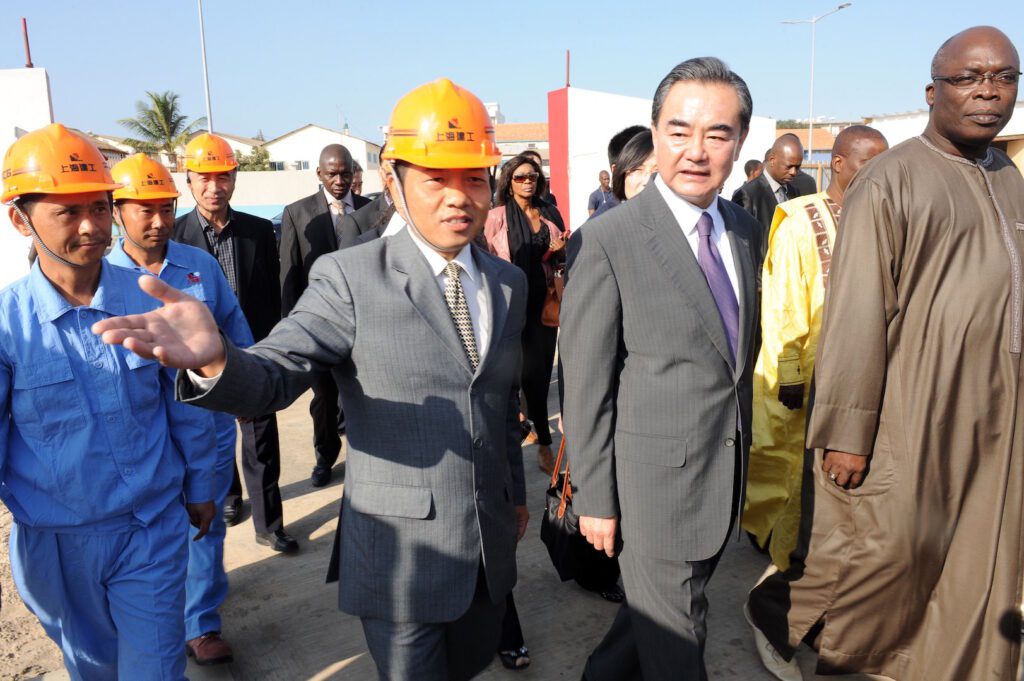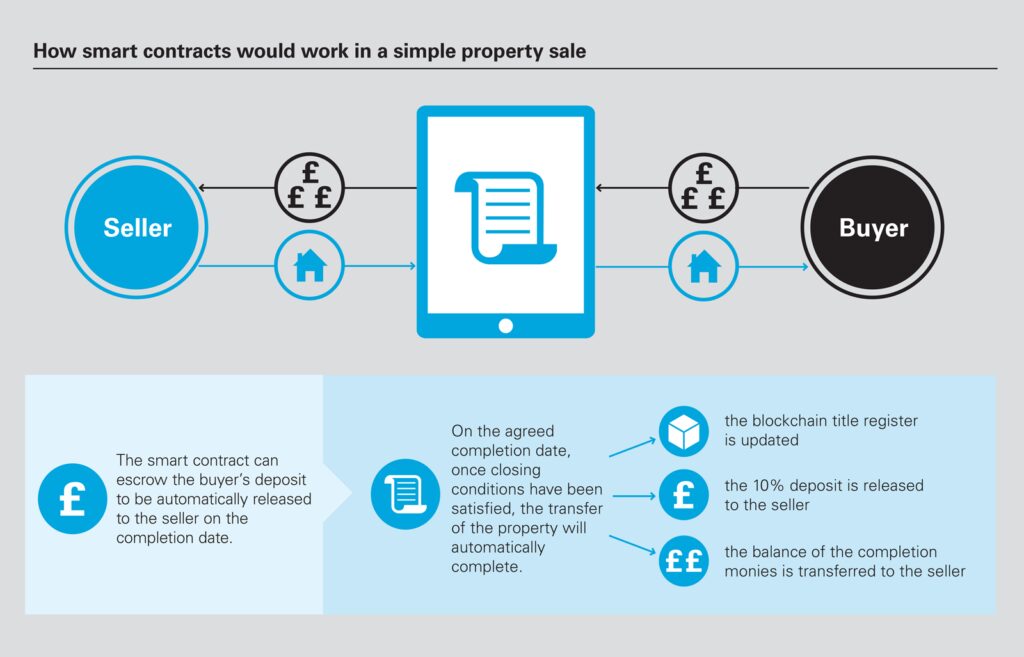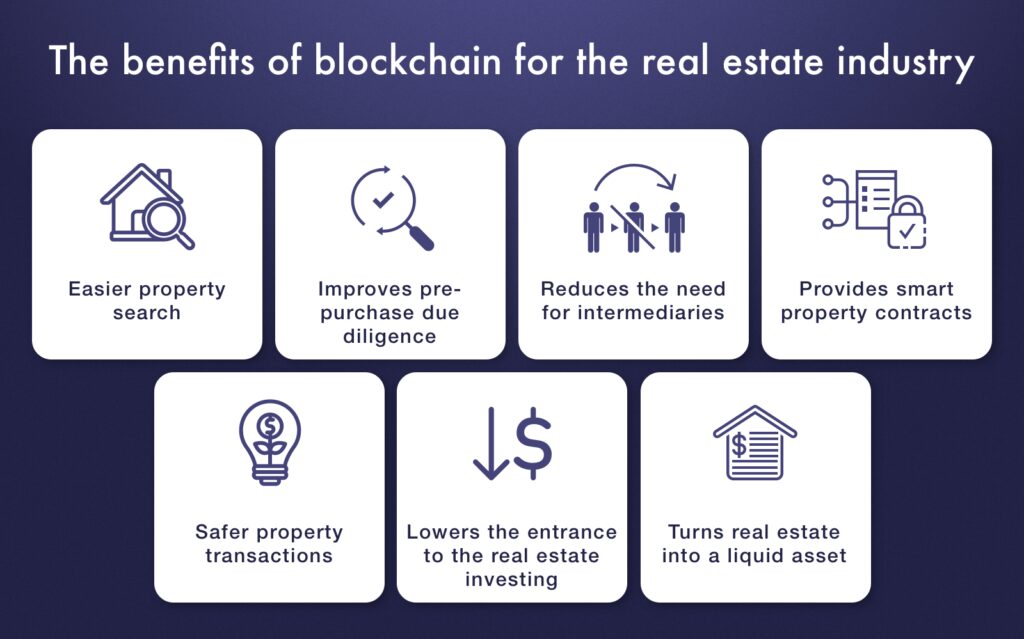- Africa is home to 60% of the world’s youth population, which means that by 2050 Africa, will effectively be one of the most modernized regions globally.
- Credible real estate companies thrived within Africa mainly due to well-established and robust frameworks for real estate investment.
- Since real estate became an industry using blockchain, it has alleviated the need for third parties.
Real estate investment in Africa is one of the most sought-after investments opportunity by many. The rapid growth of real estate markets within various African countries has fueled its trajectory. One of the few traditional notions of wealth in Africa is land ownership. Thus as the market advanced, so did its technology. Today real estate is one of the few industries using blockchain, utilizing digital currency as a payment option.
This begs the question, what kind of impact does blockchain have on Africa’s real estate Market? In addition, how can you gain access to the various benefits offered by this peculiar merger between old and new industries?
Understanding the lucrative venture of real estate.
Africa is known for its abundance of natural resources. Its primary economic activity is Agriculture, but other natural resources have fueled various economies within the continent. From Natural gas to charcoal and wood to even horticulture, however, none has remained at an inclined trajectory like real estate investments in Africa.
The primary reason is that land never depreciates. Despite Africa being one of the largest continents, it is also home to one of the largest populations. Africa is currently in its urbanization phase, where more countries are shifting into a digital era. In addition, Africa is home to 60% of the world’s youth population, which means that by 2050 Africa will effectively be one of the most modernized regions globally. With the increase in population ad urbanization, the demand for land to expand various facilities and regions is inevitable.
Also, Read Beyond Art: Non-Fungible Tokens (NFTs) are proving their value in the world of crypto.
This is also one of the main reasons why real estate investment in Africa is termed the “golden child” of investing; you are guaranteed massive returns. There is still plenty of vacant land in Africa, and investing in one is relatively less risky than entering the crypto market. Furthermore, with the proper legal documents, it is one of the few investments that has guaranteed security.
Real estate is advancing
It is common to see various communities within Africa dispute over land. Over the years tracing and documenting the boundaries and the legal ownership of a specific land was a tedious endeavour. Most court cases would last decades before the judge had a verdict.

Blockchain in Real estate
When the concept of digital currency washed up Africa’s financial sector, many developers and entrepreneurs saw the potential of such a system beyond its initial application. Soon the idea of developing an entirely new version of the Internet, Web3, radiated in the minds of every tech guru. Currently, the world runs on Web2, and most functionalities generally cannot survive without it despite its various shortcomings. Thus when blockchain technology and its numerous applications were implemented, real estate soon became an industry using blockchain.
On the surface, blockchain brings in the concept of tokenization. This is merely the digitalization of securities or alternative financial products. Tokenization came with a new form of ownership which is mainly termed NFT. In addition, came the automation of transactions alongside the immutable nature of every single piece of information within a blockchain.
Tokenization also reduced costs while increasing the speed of creating, supporting and facilitating transactions. All these factors generated the three natures of digital currency; immutable, transparent and decentralized.
Also, Read South Africa dethrones Kenya in cryptocurrency ownership.
All these factors were uniquely attuned to solving the issues surrounding real estate investments in Africa.
Short-comings of traditional real estate investment in Africa
Before being an industry using blockchain, this investment opportunity in Africa has its fair share of demerits. Unfortunately, even with the ongoing digitalization of Africa, it cannot address several issues plaguing its market.
One of the few demerits of real estate investment in Africa is that it is a long-term process. Traditionally various actors would be involved in the process aside from the seller and buyer. Acquiring the legal documentation to prove ownership and the several transfer processes would take years.
This has been a significant vulnerability within the entire procedure. The risks around money laundering and the constant “back and forth” with banks have made many potential investors give up the notion of real estate investment in Africa. Unfortunately, if an individual finds a way to speed up the process, it would lead to several disputes later on.
In addition, due to the numerous parties and procedures involved, it lacks a sense of transparency as an investment opportunity in Africa. Essentially unless a buyer constantly follows up on the process, it might last up to a decade. Unfortunately, some “disappear” in between the process.
The second and most crucial demerit is the high rate of corruption surrounding real estate investment in Africa. Land grabbing is a common vice in Africa, and many have suffered under the oppression of those in power. Because before blockchain in real estate, most title deeds were in hard copies.
It would either suffer from deterioration or would be lost. Even when most real estate companies digitalized their system, a single entity or a group still governs their central system. With the high rate of corruption in Africa, an individual could “purchase” the rights of the title deed. This lack of integrity causes plenty of bloodshed in Africa.
Fortunately, since real estate became an industry using blockchain, most of its demerits were quickly resolved.
Impact of Blockchain in real estate in Africa.
The sophistication of blockchain technology transformed real estate investment in Africa. Here are the few instant changes that occurred once digital currency became an option when the industry started using blockchain technology.
Greater Network
Despite the abundance of land, this investment opportunity in Africa has struggled, over the past decade, to connect buyers and sellers. Both might be willing to form a transaction, although, due to geographic distance, they might never know the other exists. However, with blockchain in real estate, it intoduces a new interconnected network among buyers and sellers. Like cryptocurrency in a decentralized network, blockchain can introduce a new form of trade within the real estate industry.

No Third-Parties
As previously mentioned, real estate investment in Africa is rather complex due to the number of entities involved. Thus, the process is often long, tiresome and costly to any willing buyer. In Africa, it is a typical norm that intermediaries purposefully lengthen the entire process. In doing so, they can earn more from the client in terms of commission.
Also, Read about African problems that blockchain technology is already solving.
Fortunately, since real estate became an industry using blockchain, it has alleviated the need for third parties. The primary objective of blockchain technology, digital currency and Web3, in general, is to empower the user directly.
This single goal ties all the elements of Web3, and Africa is at the forefront of benefiting. With blockchain, real estate buyers are able t cut off unnecessary entities. This significantly cuts the time required to process the transaction by nearly half.
Certificate issuance and Ownership rights
Land grabbing and disputes have plagued Africa since pre-colonial times. Today corruption is high due to “missing” or fabricated documents.
Blockchain in real estate utilizes smart contracts to process and automate any transactions between two parties. If both parties meet all the criteria and agreements, the smart contract will instantly issue a certificate or a title deed. This process legitimizes the certificate preventing anyone from creating a duplicate or denying its authenticity.
In addition, as an industry using blockchain technology, it also offers fractional ownership. In layman’s language, this is simply an investor buying the land portion b portion. This works under the same principle as stocks in a company. It allows an investor to pool their money over a period. This helps both the seller and buyer since investors avoid managing the property themselves while the seller can gain some compensation.
Transparency and security
Blockchain technology commands trust, transparency, and security in any of its applications. Blockchain in real estate is no exception. With transparent transactions, investors can gradually gain faith in real estate being a good investment opportunity in Africa. In addition, using digital currency allows traceability, thus avoiding all fraudulent activity.
The lack of transparency is one of the few reasons why most Africans today tend to look for a back door behind the legal system of real estate.
Also, Read and Understand the importance of the Web 2.0 to Web 3.0 transition.
Its immutable nature guarantees data safety, and the owners must consent to alter the account. This also significantly aids in the fight against corruption in Africa.

Existing real estate companies using blockchain.
Currently, only a handful of the real estate industry uses blockchain technology. Despite their small numerable in Africa, they have made significant strides to ensure their system is always operational.
They include:
- Land Layby Group – A Kenyan real estate firm that uses blockchain to store land registry records.
- HouseAfrica – A Nigeria property verification firm that utilizes blockchain to automate its processes.
- Seso Global – a real state form launched in Nigeria and South Africa that utilizes blockchain technology to process its transactions between buyer and seller.
- Makazi Africa – is an industry using blockchain technology to provide investment opportunities in Africa’s real estate market.
Once blockchain in real estate became possible, it completely changes the trajectory of Africa. Despite everything, blockchain’s end goal is to completely usurp Web2. To accomplish this feat, Web3 must be scalable and compatible with other industries. Digital currency has proven yet again to be the better alternative as it takes the top investment opportunity in Africa to the next level.
